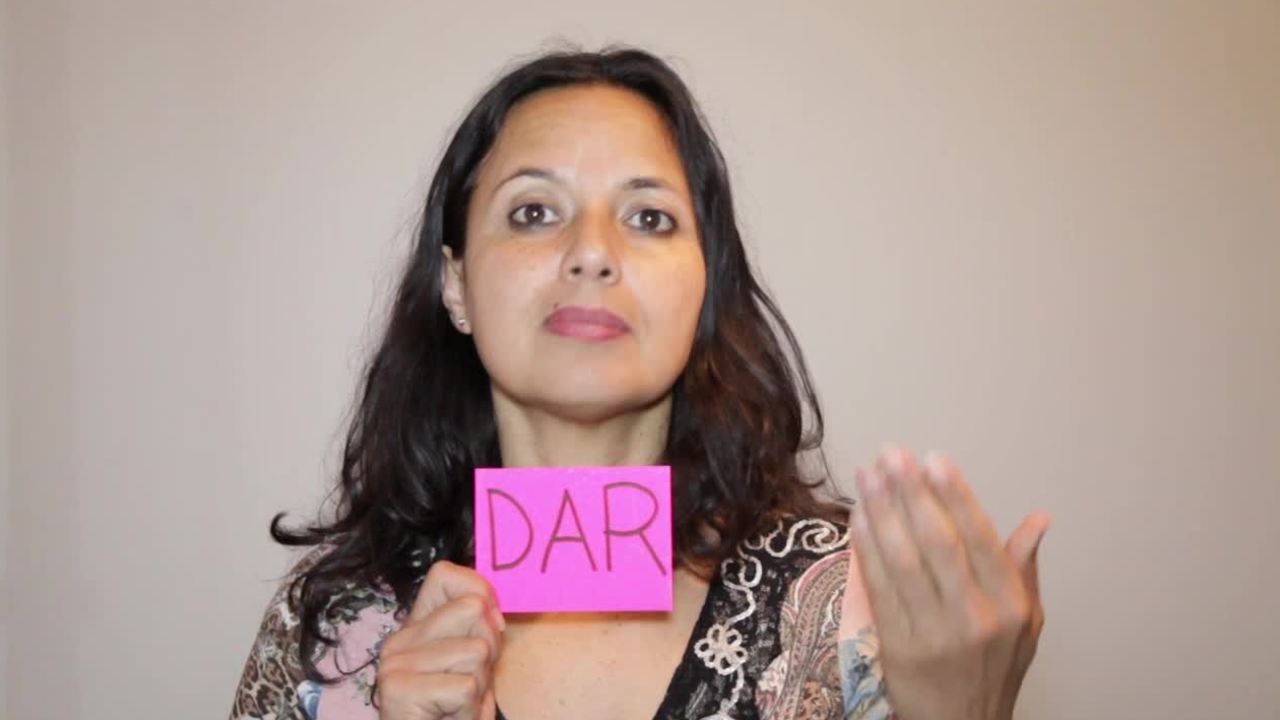
Spanish teacher Carolina Graterol has a knack not only for explaining the intricacies of Spanish grammar but also for pointing out those errors she notes most commonly among students. A favorite among Yabla subscribers of all levels, Carolina’s succinct speech makes learning even tough grammatical concepts both accessible and enjoyable.
Difficulty:
 Beginner
Beginner
Venezuela
Carolina teaches about the apocopation, or shortening, of a small group of masculine singular adjectives in Spanish.
Difficulty:
 Beginner
Beginner
Venezuela
Having noticed a lot of confusion among her students regarding the usage and meaning of reflexive verbs and pronouns, Venezuelan Spanish teacher, Carolina Graterol, clarifies these topics with some useful examples.
Difficulty:
 Beginner
Beginner
Venezuela
Carolina gives us an in depth explanation of the verb "dar" (to give) in various contexts and sentences.
Difficulty:
 Newbie
Newbie
Venezuela
Teacher Carolina shares this lesson to help us differentiate between three Spanish verbs that have a very similar meaning.
Difficulty:
 Beginner
Beginner
Venezuela
Carolina teaches us the difference between the Spanish verbs "saber" and "conocer" [to know], which are similar but not interchangeable and used in different contexts.
Difficulty:
 Beginner
Beginner
Venezuela
Carolina, a Venezuelan Spanish teacher, teaches us the difference between the Spanish verbs, "mirar" (to look at/watch), "ver" (to see) and "buscar" (to look for) and gives us examples of sentences in which they might be found.
Difficulty:
 Beginner
Beginner
Venezuela
Because the Spanish words/expressions "haber" and "a ver" and "si" and "sí" sound exactly the same, their very different meanings are often confused. Spanish teacher Carolina enlightens us as to their differences.
Difficulty:
 Beginner
Beginner
Venezuela
Carolina teaches us how to correctly express "tonight" (esta noche) and "last night" (anoche) in Spanish and cautions us against some commonly used but erroneous expressions for these concepts.
Difficulty:
 Beginner
Beginner
Venezuela
Carolina teaches us about a few copulative conjunctions in Spanish and gives us examples.
Difficulty:
 Beginner
Beginner
Venezuela
Carolina teaches us about disjunctive and copulative conjunctions- ways to express "or" and "or else"- in Spanish.
Difficulty:
 Beginner
Beginner
Venezuela
Carolina explains some common errors she has noticed among her students in order to preclude us from making them ourselves.
Difficulty:
 Beginner
Beginner
Venezuela
Carolina shares with us more common mistakes made by students learning Spanish.
Difficulty:
 Beginner
Beginner
Venezuela
Carolina explains the particular contexts in which one should use either "personaje" or "carácter" as a translation for the English word, "character," the difference between the Spanish words "de" and "dé," and, some different ways of expressing the date in Spanish depending upon the situation.
Difficulty:
 Beginner
Beginner
Venezuela
Carolina explains when to use the Spanish verb "deber" vs. "deber de" as well as the difference between the oft confused "demás" and "de más."
Difficulty:
 Beginner
Beginner
Venezuela
Carolina explains cases in which Spanish students tend to confuse when to use the Spanish forms of "to be," "ser" y "estar," as well as the difference between the prepositions "a" and "de" with respect to verbs of movement.
Are you sure you want to delete this comment? You will not be able to recover it.